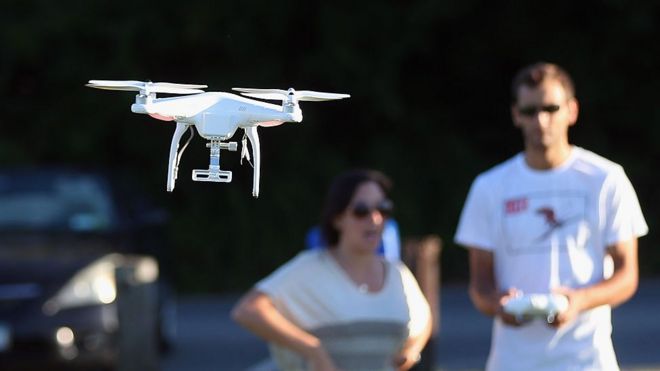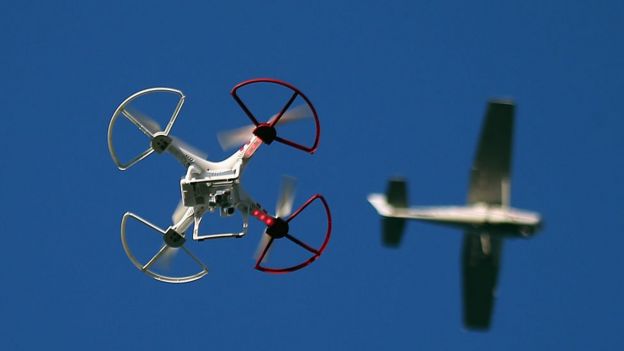UK to bring in drone registration
 GETTY IMAGES
GETTY IMAGES
The UK government has announced plans to introduce drone registration and safety awareness courses for owners of the small unmanned aircraft.
It will affect anyone who owns a drone which weighs more than 250 grams (8oz).
Drone maker DJI said it was in favour of the measures.
There is no time frame or firm plans as to how the new rules will be enforced and the Department of Transport admitted that "the nuts and bolts still have to be ironed out".
The drone safety awareness test will involve potential flyers having to "prove that they understand UK safety, security and privacy regulations", it said.
The plans also include the extension of geo-fencing, in which no-fly zones are programmed into drones using GPS co-ordinates, around areas such as prisons and airports.
'Protect the public'
"Our measures prioritise protecting the public while maximising the full potential of drones," said Aviation Minister Lord Martin Callanan.
"Increasingly, drones are proving vital for inspecting transport infrastructure for repair or aiding police and fire services in search and rescue operations, even helping to save lives.
"But like all technology, drones too can be misused. By registering drones and introducing safety awareness tests to educate users, we can reduce the inadvertent breaching of airspace restrictions to protect the public."
- Drones prompt 'flood' of complaints
- Police drone unit is first in UK
- Man fined over airspace drone flying
There has not been a significant accident involving a drone yet, but there have been several reports of near misses with commercial aircraft. There have also been incidents of drones being used to deliver drugs to prison inmates.
"Registration has its place. I would argue it will focus the mind of the flyer - but I don't think you can say it's going to be a magic solution," said Dr Alan McKenna, law lecturer at the University of Kent.
"There will be people who will simply not be on the system, that's inevitable."
 GETTY IMAGES
GETTY IMAGES
Similar registration rules in the US were successfully challenged in court in March 2017 and as a result are currently not applicable to non-commercial flyers.
Dr McKenna said there were also issues around how a drone's owner could be identified by police and whether personal liability insurance should also be a legal requirement in the event of an accident.
'Common sense'
DJI spokesman Adam Lisberg said the plans sounded like "reasonable common sense".
"The fact is that there are multiple users of the airspace and the public should have access to the air - we firmly believe that - but you need systems to make sure everybody can do it safely," he said.
"In all of these issues the question is, where is the reasonable middle ground? Banning drones is unreasonable, having no rules is also unreasonable.
"We're encouraged that [the British government] seems to be recognising the value drones provide and looking for reasonable solutions."
No comments:
Post a Comment